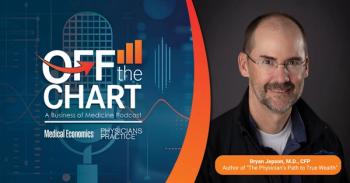
Four Way Physicians Can Avoid Fitness Tech Traps
Technology can be used as a modern convenience, but it can also spur laziness and unhealthy behavior. Here are ways to avoid this fate.
My part-time worker, a computer science major at NC State University, installed the Uber app on my smartphone. For some reason, however, neither he nor I could actually get it to work. So we did the next best thing, we installed the Lyft app. Fortunately, it worked immediately.
With this new tool for getting to and from the airport at less than half the cost of a traditional taxi I was thrilled. I began using it regularly.
In speaking to the driver on one such sojourn, I learned that customers are using Lyft and Uber and other types of ride services in ways I had not contemplated. In addition to going to the airport, or being shuttled from one town to another, people are summoning Lyft drivers for travel as short as few city blocks. When the driver told me this, I was aghast.
At first, I thought I had misunderstood, but he repeated that he has many customers in the course of a day who summon him via the smartphone app to be picked up on such and such a block, and transported for less than a minute or two.
These customers would rather surrender a few dollars to be driven a few blocks than to walk a few blocks, thereby not getting what is likely for many of them to be sorely needed exercise.
Have we evolved (or should I say devolved) as a species to the point where any modern convenience, any instrument of technology, and anything we can do to save time and labor will be employed even if it means no longer getting light, every day exercise?
I'm not talking about walking in the dead of winter when it's freezing, or in the dead of July and August when humidity is oppressive. Walking, especially in the middle of a nice spring or fall day, is an enjoyable experience. Yet, these customers the driver cited, even on sparkling fall days, will summon him for a two-block ride.
As obesity rates continue to climb, and overweight adults in America start to predominate, undoubtedly even newer technology will be developed that accomplishes this or that with the touch of a button. Many such conveniences will further erode our disposition to get in simple exercise within the course of the day.
Is it the fate of humankind to become flabby and out of shape, en mass, as if this is okay? This certainly doesn't have to be your fate. Here are some ideas for physicians and members of their staff to not fall prey to modern "conveniences":
• Always take the stairs down, not the elevator, for at least one to three flights. Take the stairs up, not the elevator, for at least one flight.
• Park your car further away than normally when approaching your office, a store, or even a friend's house. Every little bit of walking helps!
• Seek out other opportunities to walk all day long, even if it's in the office, your floor, your wing, or your building.
• Never hail a cab or ride service for less than three city blocks, unless you are experiencing blizzard conditions or extreme heat and humidity.
Newsletter
Optimize your practice with the Physicians Practice newsletter, offering management pearls, leadership tips, and business strategies tailored for practice administrators and physicians of any specialty.









